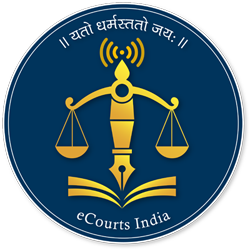Best Practices
Following Best Practices are adopted in the District and Subordinate Courts of the State of Chhattisgarh for the Speedy Disposal of Old Pending Cases, Under Trial Cases, Bail Matters, Cases in which Interim Orders have been passed and Special Category Cases –
- While complying with all the previous directions issued with cut-off dates for the speedy disposal of old pending cases, District and Subordinate Courts of the State of Chhattisgarh are to make their own specific plan to achieve the target of disposal of cases pending over 10years by 30.04.2018 and 30.06.2018 as fixed for respective districts, and similarly, to achieve the target of disposal of cases pending between 05 to 10 years by 30.09.2018 and 30.11.208 as fixed for respective districts.Besides, bail applications are to be decided within one week, and sessions undertiral cases and magisterial undertiral cases are to be disposed of within two years and six months, respectively.
- List be prepared by all the District and Subordinate Courts of cases pending over 10 years, pending between 05 to 10 years, cases falling under Prevention of Corruption Act, under trial cases, bail matters, cases in which interim orders have been passed and cases pertaining to crime against women, children, differently – abled persons, senior citizens and marginalized sections of society. This list be reviewed every month by every Presiding Officer, assessment be made with regard to progress of disposal of these cases, and further strategies be made to eliminate hurdles, if any.
- Each Presiding Officer is to identify the types of old pending cases (whether it is main case, miscellaneous judicial case, execution, etc.), and he/she is to find out the exact reason for the delay in every such old pending case.
- Order Sheets in all the old pending cases be recorded by the Presiding Officers themselves.
- Wherever it is practicable the complicated cases can be assigned to the senior and more experienced Judicial Officers.
- The cases in which proceedings have been stayed by the High Court or other Appellate or Revisional Court, proceedings would not be adjourned in a routine manner giving long date, but on every date the Presiding Officer would check the status of the proceeding of the case. This may easily be done online.
- All types of cases as indicated in the Action Plan (sent vide Memo No. 5671/D&A/2017, Dated 05 th July, 2017) and the Special Category Cases (sent vide Memo No. 5672/D&A/2017, Dated 05 th July, 2017) are to be taken on priority, assigning nearest possible hearing dates and avoiding all adjournments sought on insufficient and frivolous grounds.
- The Presiding Officers are to handle tactfully the delaying tactics of the parties.
- In all the Summons/Warrants issued in old pending criminal cases “URGENT – Old Pending Case” be written on the top of the Summons/Warrant. High level officers of the agency responsible for serving Summons/Warrants be directed to take seriously the service of such Summons/Warrants.
- The District Judges and the Chief Judicial Magistrates are to ensure rationalized equitable distribution of the old pending cases within their respective jurisdictions. This rationalized equitable distribution should not be just equal distribution of old cases, but the stage and nature of cases should also be taken into consideration. The report of the exercise for rationalized equitable distribution of cases be sent to the High Court.
- The District Judges / Chief Judicial Magistrates are to hold meeting with those Judicial Officers who are posted at the district head quarter at least once in a month to take up all the issues and challenges related to speedy disposal of old pending cases and other priority cases and applications. Details of meetings be prepared and kept for perusal as andwhen it may be required by the Hon’ble Portfolio Judges of concerning districts or the Hon’ble Chairman, Committee for Delay & Arrears Matters.
- It is to be ensured that faster disposal should not cause injustice to the litigating parties and quality must not be compromised in any condition.
- Wherever there are trainee Judicial Officers who have not yet been assigned Boards, they may be attached to Courts having high pendency for assistance as a part of their training.


